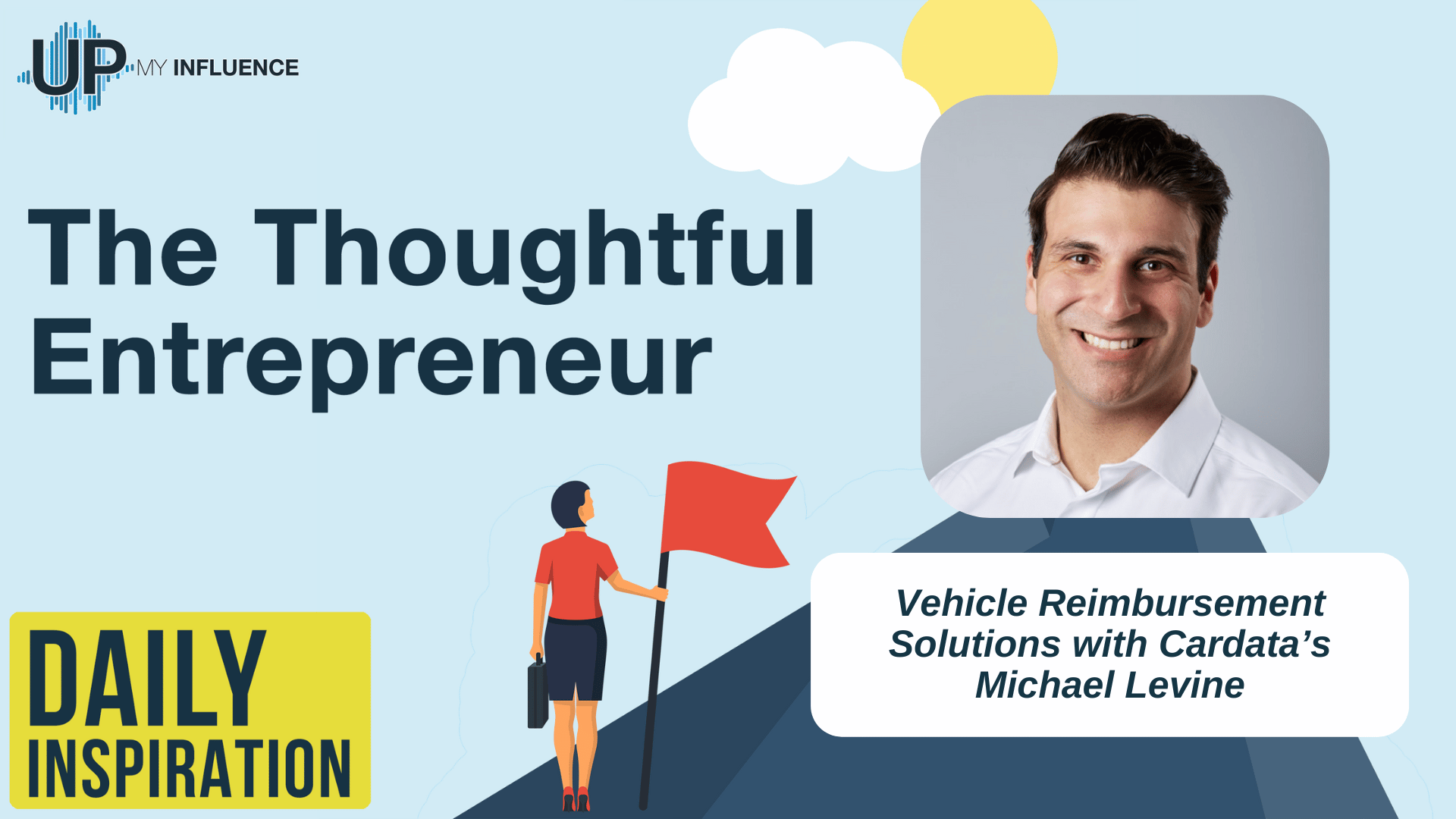THE THOUGHTFUL ENTREPRENEUR PODCAST
In this episode of the Thoughtful Entrepreneur, your host Josh Elledge speaks with the President of Cardata, Michael Levine.

Cardata is a B2B SaaS platform changing the game for companies with drivers on the road using their vehicles. They offer a mileage tracking app and a reimbursement platform that ensures drivers are fairly compensated while adhering to local tax laws in the United States and Canada.
Michael compellingly argued against company-owned fleets, citing the high costs and maintenance hassles. He pointed out the advantages for employees, such as the freedom to choose a car that fits their lifestyle and the opportunity to build equity in their vehicle.
Traditional car allowances and reimbursement methods need to be more efficient and challenging. Michael explained how Cardata's platform provides a tax-efficient and customizable solution that caters to the diverse needs of employees based on their mileage and location.
Michael also shared that various industries, including food and beverage, pharmaceutical, medical device, and construction companies, are already benefiting from Cardata's services. The company's recent significant funding round is a testament to its growth potential, with a keen focus on product improvement and brand building.
Key Points from the Episode:
- Overview of Car Data as a B2B SaaS platform for mileage tracking and reimbursement
- Comparison of using personal vehicles versus company-owned vehicles for employees
- Challenges and inefficiencies of traditional car allowances and reimbursement methods
- Industries utilizing Car Data's services
- Recent funding round and growth opportunities for Car Data
- Historical growth and client acquisition strategies
- User experience and accuracy of mileage tracking for drivers
About Michael Levine:
Michael Levine is a highly accomplished professional in private market transactions and business operations, currently serving as the leader of Spruce Grove Capital (SGC). With a background that originated at Lynx Equity and BDO Canada, he garnered expertise in business valuation and strategic management.
His leadership contributions at Target Canada played a pivotal role in the company's expansion into the Canadian market. In 2021, under Michael's guidance, SGC achieved the acquisition of Cardata, a prominent reimbursement software provider for businesses with employee-owned fleets.
Demonstrating strategic and operational prowess, he tripled Cardata's annual recurring revenue, leading to a majority recapitalization in 2023 with Wavecrest Growth Partners and MassMutual Ventures.
Michael is recognized for his empowering leadership style and cultivates a culture of inclusion, motivation, and continuous improvement within his professional endeavors.
About Cardata:
Established in 1999, Cardata has emerged as a prominent provider of tax-compliant mileage reimbursement software designed for global enterprises.
Specializing in solutions for companies whose employees use personal vehicles for work, Cardata has experienced substantial success, particularly under the leadership of Sheret Ross and Michael Levine.
The company tripled its annual recurring revenue within three years. Backed by strategic growth investments from Wavecrest Growth Partners and MassMutual Ventures, Cardata is well-positioned for continued expansion and innovation.
The company distinguishes itself through its commitment to offering IRS-compliant reimbursement solutions, ensuring that businesses and employees benefit from maximum efficiency and compliance with tax regulations. Cardata stands at the forefront of facilitating streamlined and effective mileage reimbursement processes for its global clientele.
Links Mentioned in this Episode:
Want to learn more? Check out Cardata website at
Check out Cardata on LinkedIn at
https://www.linkedin.com/company/cardata-co/
Check out Cardata on Twitter at
https://twitter.com/choosecardata?lang=en
Check out Cardata on Facebook at
https://www.facebook.com/cardataco
Check out Michael Levine on LinkedIn at
https://www.linkedin.com/in/mjlevine1/
Check out Michael Levine on Instagram at
https://www.instagram.com/daniellesabrina7/?hl=en
More from UpMyInfluence:
We are actively booking guests for our The Thoughtful Entrepreneur. Schedule HERE.
Are you a 6-figure consultant? I’ve got high-level intros for you. Learn more here.
What is your #1 Lead Generation BLOCKER? Take my free quiz here.
Want to learn more about all the podcasts managed by UpMyInfluence? Opt in here.

